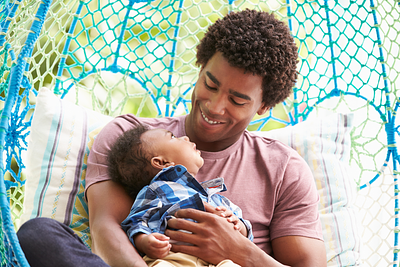Looking for all Articles by Early Years team?
The importance of tuning in to your baby's gestures
How simple games that babies play encourage early communication

Using gestures
Even before they can talk, or before adults can understand their speech, babies are communicating and attempting to engage others in conversations. Babies use lots of gestures to communicate and get the attention of people around them. They may point to things that interest them, or that they want you to notice, or hold objects out to show you. These gestures and actions all serve the purpose of engaging others in conversation – even if the infant is non-verbal. To a baby, these gestures are a conversation and a game they want to play and how we respond can have a massive impact on their language development.
Pointing Games
Pointing games provide a rich language development opportunity for babies. These games are social and include elements of turn taking and joint attention. Joint attention – sharing focus on an object, event, or topic – is a critical element of early language learning. During periods of joint attention, pointing at objects and talking about them can help wee ones link words to objects, actions, and events, expanding their vocabulary and supporting their comprehension skills. Extended the talk around the object can be even more beneficial.
Early communication
Gestures and pointing are an important part of a baby’s early communications. It’s sometimes easy to overlook games where babies hold an object out and expect the carer to take it, or worse for adults, repeatedly hold out, and take back! The temptation may just be to take the object and say something like ‘thank you’ or provide a basic description like ‘that’s a ball’. If we can extend the talk, describe the object, link it to other familiar objects or the baby's experience, then we're able to turn the baby's interest into a rich language development opportunity. Diverting the infant’s attention, ignoring their chosen topic of conversation, or using language that is unrelated to what they’re showing you, can mean they miss out on those language development.
So the next time a baby holds something out for you to take, think about what they’re showing you and telling you. See the game from their perspective and turn it into a conversation. The way you respond and engage in the game can have a positive impact on their language development.